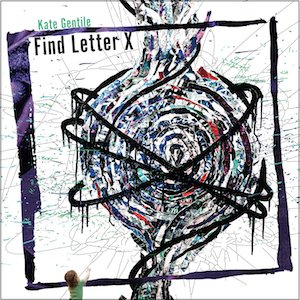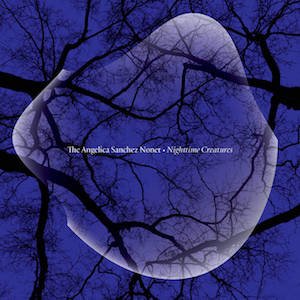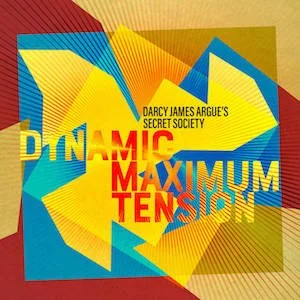Label: Intakt Records, 2023
Personnel - Sylvie Courvoisier: piano; Wadada Leo Smith: trumpet; Nate Wooley: trumpet; Christian Fennesz: guitar; Drew Gress: bass; Kenny Wollesen: drums, vibraphone.
On the heels of The Rite of Spring, a classical/improvised jazz piano hybrid recorded at four hands with Cory Smythe, Swiss-born pianist Sylvie Courvoisier releases the double-disc Chimera, inspired by the art of French Symbolist Odilon Redon. The stunning batch of new compositions is brought to life by a sextet comprised of her regular trio mates, bassist Drew Dress and drummer Kenny Wollesen, plus a powerful trumpet frontline with creatives Wadada Leo Smith and Nate Wooley, and Austrian guitarist Christian Fennesz providing unexpected atmospherics to the mix.
The music provides a deep sense of fantasy and reverie from where the group’s understated, sometimes esoteric side comes out. Melodies gently float above, ascending higher, and then landing on ambiguous realms. These can be lulling, descriptive, and hypnotic until the group pulls the rug out with brief blasts of avant-garde jazz. The opener, “Le Pavot Rouge”, sets the tone, introduced by beautiful bass playing before pulsing with a world music-inspired disposition. Intermittent distorted guitar chords immersed in reverb and other ethereal effects intermingle with the piano riff, while the trumpeters complement each other with undisturbed lines and high-pitched moans. The second half of the piece, which spans over 21 minutes, itakes on a darker and more mysterious tone without losing its fragility or pathos. It ultimately concludes with the same amiable sense of hope that it began with.
The fluidity of “Partout Des Prunelles Flamboient” is a marvel. This track, titled after Redon’s 1988 lithograph, takes a more jazz-oriented approach, bringing together electronic noise, tonal fusion with Eric Dolphy-esque angularity on top, and sudden rhythmic shifts that enliven a texture already packed with mesmerizing psychedelic irruptions. It lives in the borderlands between the dreamy and the boisterous. In turn, “La Joubarbe Aragaineuse” remains cold and static in its suspended state of cinematic expression.
The second disc opens with the 14-minute "La Chimère aux Yeux Verts", an ambient soundscape that incorporates Keith Jarrett-esque folk-jazz piano elements and a propulsive backbeat at its core. Double trumpet interjections sometimes align, but Smith and Wooley showcase the unique qualities of their sounds, scattering chimeric chains and fragments of melody over tense low-pitched piano explosions and otherworldly guitar smears. The album concludes with "Le Sabot de Venus", avoiding sinister developments and leaving the listener with a sense that a profound journey has taken place.
Courvoisier demonstrates her ability for transformation in these long, slowly evolving pieces that continue to intrigue with their trance-like quality upon each listen.
Favorite Tracks:
01 (CD1) - Le Pavot Rouge ► 03 (CD1) - Partout Des Prunelles Flamboient ► 01 (CD2) - La Chimère aux Yeux Verts








































